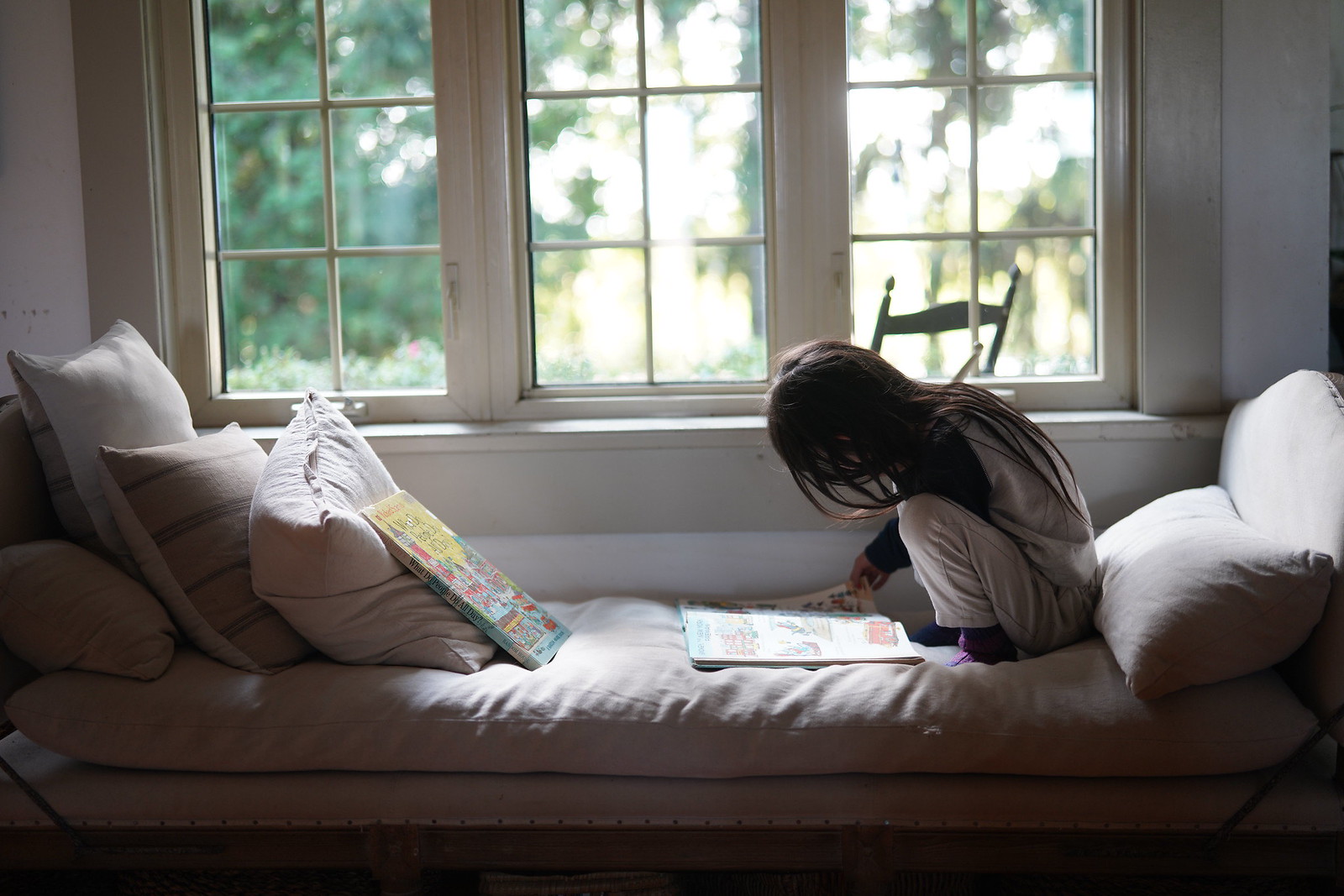Savannah Guthrie shares deeply personal stories in her new book, Mostly What God Does. It is an honest exploration of the love of God and a biblically rooted look at six essentials of faith; love, presence, grace, hope, gratitude, and purpose. Here, Savannah shares more on love, what parenthood has taught her and God’s ultimate real-life metaphor.
Guest Post by Savannah Guthrie
I will never forget laying eyes on Vale for the very first time.
I can still see the doctor lifting up her little frame high in the air to give me the first glimpse. “It’s a girl!” he exclaimed. “She’s a chunker!”
She was eight pounds, nine ounces of sheer miracle.
I felt a combination of ecstasy and shock—how could it be that what was nothing nine months before had turned into such a profound something?
I cradled her face to mine. Cheek to cheek, my girl and I. The tears tumbled out, a dam-like release from a place deep within, as though lying dormant until precisely this moment. I knew these strange and lovely tears were always, only, meant just for her.
Two years later, weeks shy of my forty-fifth birthday, my little firecracker Charley wailed his way into the world. Our family was complete.







My kids are simultaneously my greatest joy and my most searing daily challenge. Loving them has made my life meaningful.
Because I came to parenthood later in life, long after I had given up hope, I do not take it for granted. When Charley was six weeks old, I brought both kids home to Tucson to visit my mom. My cousin Teri, who was like an aunt to me growing up, drove down from Phoenix to see us. “Oh, Savannah,” she said, her eyes glistening as she watched me with my babies. “It’s all you ever really wanted.”
“Motherhood. What a revelation. Physically. Emotionally. Intellectually. And yes, spiritually. I can think of no other experience that has more enhanced my understanding of God. “
Motherhood. What a revelation. Physically. Emotionally. Intellectually. And yes, spiritually. I can think of no other experience that has more enhanced my understanding of God.
To me, parenthood is God’s ultimate real-life metaphor; it is the closest humans will ever get to grasping how God relates to us. It is no accident the scriptures refer to him as our heavenly Father, and we, his children—the nearest approximation of God’s love for us is parent to child.
In my experience, God’s revelations are always much more about “show and tell” than scrolls and edicts from the mountaintop (except for Moses that one time). Being a mom has been quite the show and tell for me, bringing home, in the most profound and personal way imaginable, what God must be thinking and feeling at any given moment.
It’s worth taking a moment just to ponder it. How we feel about our kids is how God feels about us. The way we adore them. The way they make our hearts leap with joy. The way we revel in their personalities and gifts and quirks. The way we glory at their milestones and accomplishments, no matter how minor. Watching them grow is like witnessing the unfolding of a flower in real-time, a gift we get to open and reopen every day.
God’s connection to his children is stunningly intimate and tender—like a mother to her child. I don’t know about you, but I can scarcely take that in. It is overwhelming to imagine that God could feel that way about me. Too good to be true. But transformative if truly absorbed.
God’s great metaphor does not end there. Every parent knows that to have children is to carry a joyous burden of worry and fear and concern. The famous quote is famous for a reason: “To have a child is momentous. It is to decide to have your heart go walking around outside your body.”
When my cousin Holly had her first baby, I asked her what it was like. She said, “It’s like having a thorn. You love that thorn, but it is a thorn.”
Our kids worry us. Challenge us. And they frustrate us, some- times to our breaking point, especially when we are just trying to ward off disaster, only looking after their best interests. From explaining to a toddler why they can’t have ice cream for breakfast, to telling a tween why she isn’t allowed on social media, it is often an exercise in exasperation and helplessness.
If only I could make them do what is good for them! How I wish I could just make them understand that the things I’m doing or forbidding—it’s for their own good! It is not to be cruel or with- hold happiness from them. I’m on their side!
Now imagine those words from God. About us. And we are beginning to grasp his perspective toward his children.
“To me, parenthood is God’s ultimate real-life metaphor; it is the closest humans will ever get to grasping how God relates to us.“
We are imperfect humans who stumble and fail. We make bad decisions. Things go wrong and we don’t understand what God is doing. We complain and rebel. We withdraw, sulk, and give God the silent treatment.
We can’t see the big picture. Like kids who are incapable of seeing the long view (“One day you’ll thank me I didn’t let you get a face tattoo!”), we don’t have a wide enough perspective. We are only human. We don’t have the multidimensional vantage point of God, taking account of people, places, and events, of future and current and past.
But like a good parent, God does not let this get to him. He does not grow impatient. He does not rage. His love, compassion, and unwavering commitment never fail—regardless of how we act, what we say, or what we “deserve.” And his forgiveness is always available when inevitably, we fall. When we turn to him, we find him waiting with outstretched arms.






My son, Charley, had a protracted “mean to mommy” phase when he was four. Like so many toddler phases, it lasted much longer than I could tolerate.
“How was your playdate today, sweetie?” I remember asking him once. “I had such a good time. I forgot about you,” he replied. “And I wanted to forget about you.” (Yes, I wrote down the exact quote.) I worried I was raising a little boy who hated me. I even called the pediatrician who laughed and said, “Oh, they’re meanest to the ones they feel the closest to!”
“God’s feelings for us have nothing to do with our feelings toward him… He loves us not because of who we are or what we do, but because of who he is and what he does. “
Toddlers are like little scientists, watching everything and gathering data: What happens if I throw this? What happens if I press there?
In this case, the “there” he was pressing on firmly was my heart. Intellectually, I could understand that he was just testing, taking his personality out for a spin. I attempted to keep a stoic face in front of him, maintaining a cool exterior—then, I would close the door and cry actual tears because a little boy hurt my feelings.
Let’s face it: kids often are their worst at home. They walk in, kick off their shoes, dump out their backpacks all over the floor and their emotional baggage all over Mom.
But here’s the thing that parenthood has taught me— something unique to any other kind of relationship. It does not matter how our kids act; our love for them is unshakable.
So it is with God.
This is the bedrock truth that motherhood has brought home to me in the most visceral way. God’s feelings for us have nothing to do with our feelings toward him. His thoughts toward us have nothing to do with our thoughts toward him. We cannot do or say anything to make him love us more—or less. He loves us not because of who we are or what we do, but because of who he is and what he does.
He loves. Like a mother. But better.

Savannah Guthrie is an Emmy and Edward R. Murrow Award recipient and best known as co-anchor of NBC’s TODAY show. Her first trade book, Mostly What God Does, is available now. She’s penned these reflections to help you engage in the real and practical ways that God loves you. With true stories that bring both tears and laughter, you will discover a path of faith that is both authentic and heartening.
{Our humble thanks to Thomas Nelson for their partnership in today’s devorional.}







